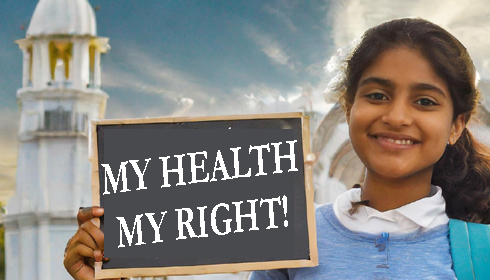
From Declaration to Action: Why Health as a Human Right Remains Unrealized in 140 Countries
In today's world, millions face an unacceptable threat to their fundamental right to health. The looming spectre of diseases and disasters, the devastation wrought by conflicts, and the insidious impact of climate change, are all exacerbated by the burning of fossil fuels that leads to air pollution claiming a life every 5 seconds. These interconnected crises demand immediate and decisive action to safeguard the health and well-being of all individuals, regardless of their circumstances.
To this end, nations need to prioritize protecting human health and well-being and take a bold, assertive stance towards addressing these challenges. We must adopt a holistic approach that goes beyond isolated interventions and addresses the root causes of these challenges. Governments, organizations, and individuals must work together, with an unwavering commitment, to develop and implement innovative and effective solutions.
Notably, while at least 140 countries recognise health as a human right in their constitutions, many fail to pass and implement laws ensuring access to essential health services for their populations. Shockingly, more than half of the world's population—approximately 4.5 billion people—remain inadequately covered by essential health services as of 2021. This glaring gap between rhetoric and reality underscores the pressing need for tangible measures to uphold the right to health for all.
In response to these pressing challenges, the theme for World Health Day 2024, 'My health, my right,' assumes paramount significance. This theme serves as a clarion call to reaffirm the inherent right of every individual, regardless of their background or circumstance, to access quality health services, education, and information. It encompasses a holistic vision of health that encompasses not only medical care, but also safe drinking water, clean air, good nutrition, quality housing, decent working conditions, environmental sustainability, and freedom from discrimination.
At its core, 'My health, my right' encapsulates the principle of health equity—the notion that everyone deserves a fair opportunity to attain their highest level of health. It recognises that health is not merely the absence of disease but a state of complete physical, mental, and social well-being. By embracing this ethos, we commit ourselves to building a world where every individual can lead a healthy and fulfilling life, unencumbered by preventable illness or needless suffering.
Realising the vision of 'My health, my right' demands concerted efforts at both the national and international levels. Governments must prioritise health as a fundamental human right, enacting legislation and policies that ensure equitable access to healthcare for all citizens. This entails investing in robust healthcare systems, addressing social determinants of health, and combating systemic inequalities that perpetuate health disparities.
On this World Health Day, it is imperative that we, as a global community, come together more than ever to reinforce our commitment to prioritizing health equity and upholding fundamental human rights. We must amplify our dedication to tackling the complex web of challenges, such as climate change, conflict, and humanitarian crises, that continuously pose threats to health and overall well-being on a worldwide scale. By fostering and nurturing collaboration, solidarity, and innovative solutions, we have the potential to pave the way towards a brighter, healthier, and more inclusive future for all individuals. Today, let us wholeheartedly renew our pledge to champion a world where each person has the unalienable right to enjoy good health without facing discrimination or unjust obstacles. It is our collective mission to work towards a future where access to healthcare is not a luxury but a universal entitlement, ensuring that every individual can lead a life of wellness and dignity.